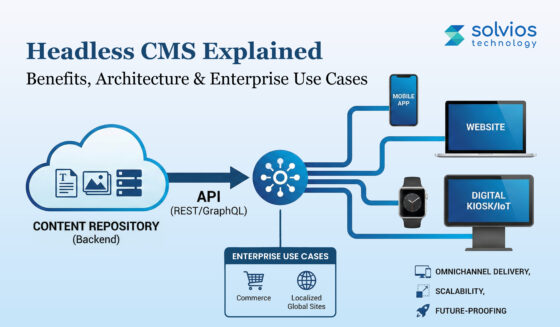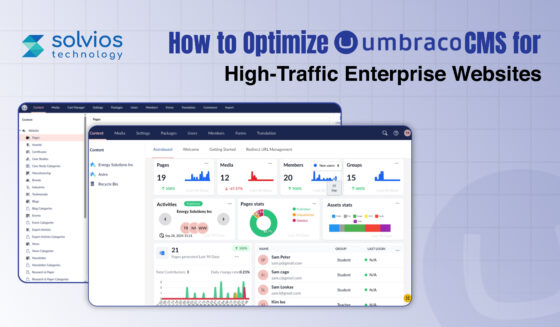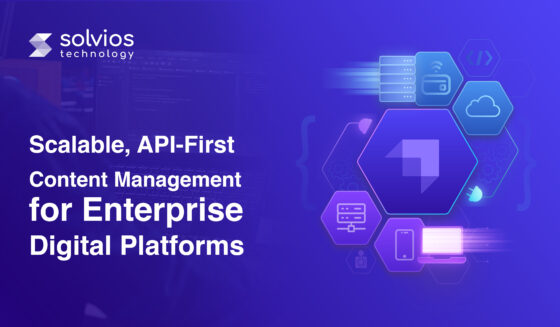
What is Enterprise Blockchain?
An enterprise blockchain is a blockchain network intended for huge organisations and associations. Enterprise blockchain networks take advantage of blockchain innovation’s benefits such as security, immutability, and decentralization, and modify the fundamental design to work in large business environments. Today, many organizations have realized that enterprise blockchain solutions are efficient in streamlining their business processes, and they are preferring to consider enterprise blockchain.
Since Bitcoin’s presentation in 2008, specialists have perceived the advantages of blockchain innovation for smoothing out business processes. However, the disadvantages of public blockchains like Bitcoin deterred organisations from utilising the innovation.
Organizations process numerous exchanges and need a framework fit for dealing with spikes in exchange rates. Decentralized public blockchains require each hub to affirm exchanges, slowing exchange speed. A public blockchain like Bitcoin, which processes a pitiful 5-7 exchanges each second, can’t work for a business handling hundreds, on the off chance that not thousands, of exchanges each second.
Enterprise blockchain solutions take care of the issues related to customary blockchain networks and alter them to fulfill the requirements of large organizations. With big business blockchains, your firm can take on dispersed record innovation (DLT) and appreciate security, versatility, and control.
How Does Enterprise Blockchain Vary from Other Types?
A larger part of big business blockchains is permissioned blockchains where significant organisations have direct control over them.
This is probably the greatest contrast that puts permissioned records beside public ones like the one Bitcoin is based on. Public blockchains exist outside the control of any one organisation or government and are impervious to restriction. This is why bitcoin and other digital currencies have been utilised effectively to bypass global endorsements and even battle homegrown instances of blackmail.
Enterprise Blockchain Characteristics
Accountability
Every hub in the organisation-which each holds a duplicate of the exchange history-is known and can be considered responsible for its activities. For instance, frequently, venture Enterprise Blockchain Solutions are shared by a couple of organisations or monetary elements in an agreeable arrangement.
Permissioned
Clients who have authorization can utilize the blockchain. It is up to the organization’s owner(s) to decide who is and is not permitted to use it.
Mutable
Assuming all substances dealing with the organisation concur, the information can be changed.
Scalability
Since enterprise blockchains are ordinarily not as decentralized as Bitcoin, they can undoubtedly uphold more exchanges at the base layer.
Let’s Discuss the Types of Enterprises on Blockchain
Private Blockchain
Private blockchains are closed organisations open only to members permitted by the focal substance. Not at all like a public blockchain, private blockchains depend on a focal hub to approve transactions. This hub may also figure out who can add to the framework and what information is OK.
With fewer gatherings in the organization, exchange confirmation speed increases, and versatility advances to the next level in a private blockchain. Organizations can execute securely on a private blockchain network without dreading free access to group data.
Hybrid Blockchain
Hybrid blockchain networks consolidate elements of private and public chains. The outcome is an answer that resolves the issues innate in the two blockchain frameworks while maintaining their advantages.
Practically speaking, a mixed blockchain would permit organizations to divide a few sections while opening up the remainder of the network.
Data integrity on a hybrid blockchain is higher since the proprietor can’t revamp information without the endorsement of different hubs. Likewise, cross breed networks have better security, as agreement is circulated across all organisation hubs.
Consortium Blockchain
With their decentralized, shared structure, consortium blockchains look like public blockchains. No single element controls the framework, and each organisation member holds a duplicate of the conveyed record.
Be that as it may, a consortium blockchain is as yet a private organization. The distinction here is that the aggregate determines who can join the organization, not a focal association. Additionally, all organisation members should settle on the legitimacy of information before it is recorded on-chain.
Consortium blockchains are frequently a collaborative effort between various organisations that require a secure and efficient method of communication.
Why Should Businesses Consider Blockchain Enterprises?
Data Safety
Rather than putting away data in weak information storehouses, they can record it on-chain for better security. Hacking a blockchain organisation to take the information put away on it would require including most of the hubs, an outrageously costly assignment.
Also, information added to the blockchain’s record is carefully designed because of the utilisation of cryptography to encode data. Blockchains store data in blocks connected together to form a chain (hence the name “blockchain”). Each square contains an extraordinary 256-character esteem called a hash and a “pointer.”
Transparency
Endurance blockchains give straightforwardness, a critical element of fruitful business connections. Indeed, even in a private organization, members can see all exchanges led on-chain. All the more critically, the information is impenetrable to control.
Cost-Effective
When conveyed appropriately, venture blockchain innovation can save organisations a large number of dollars. For example, organisations would have no need to put such a huge amount of information into the executives’ and security teams’ jobs, given the protected idea of blockchains.
Another area where organisations can set aside cash with blockchain innovation is client character checks. Per measurement, organisations burn through millions on Know Your Customer (KYC) processes.
A blockchain-controlled ID framework would eliminate the requirement for clients to present similar data to finish KYC processes at various associations. All things being equal, clients can record the data on the blockchain, where it’s noticeable to all.
An interbank KYC framework would guarantee clients just need to transfer significant subtleties once and don’t have to go through similar interaction with each bank they need to enlist for.
Easy Supply Chain Management
Brands like Walmart are utilising blockchain to further develop the production network. This innovation can increase inventory network perceivability and straightforwardness and facilitate the subsequent use of imperfect items. Besides, clients can believe the data about items since each party in the organisation confirms it.
Best Blockchain Platforms for Enterprise
Hyperledger
Hyperledger is a result of the Linux Foundation and has a prevailing portion of the BaaS market. The organisation is centred around giving industry-grade instruments to enterprises to convey applications on the blockchain.
Numerous notable organisations utilise Hyperledger’s DLT innovation, including Intel and SAP Ariba. IBM utilises Hyperledger Fabric, one of the organization’s items, as the premise of its BaaS offering, IBM Hyperledger Fabric.
Ethereum
While Ethereum is a public blockchain, its incentive for enterprises lies in its programmability. Ethereum permits designers to make shrewd agreements and decentralized applications (dApps), which are valuable for organizations.
Beyond dApps, the Ethereum network works with the creation and trade of non-fungible tokens (NFTs), tokenized resources put away and traded on the blockchain. Coca-cola, Taco Bell, and Nike are just a portion of the enormous organisations using NFTs.
Corda
Corda gives the advantages of circulated record innovation (DLT) while programming in big business explicit elements like security and adaptability.
On the lookout, particularly in the monetary administration market, Corda has cut a specialty for itself. Clients incorporate financial monsters like HSBC and Bank of America. With its developing profile, Corda could likely be among the greatest blockchain organisations in a couple of years.
Final Words
Many organisations are looking to leverage the benefits of enterprise blockchain technology. Some are in the testing phase. If you are the one who is seeking enterprise blockchain solutions, we at Solvios Technology, LLC provide enterprise blockchain services to help you harness the power of blockchain technology to streamline your business process and protect against cyber threats.
We provide technical consulting services at every step of blockchain adoption. Schedule a meeting with us and talk to our experts to discuss your project. Visit: https://solvios.technology/contact/
Tags
Related Blog
Want to get started with App Development?
These applications are acquiring enormous prevalence by offering hands-on enterprise mobility solutions for organizations around the globe.
Start A ConversationLatest Blogs
Our Partnerships






















